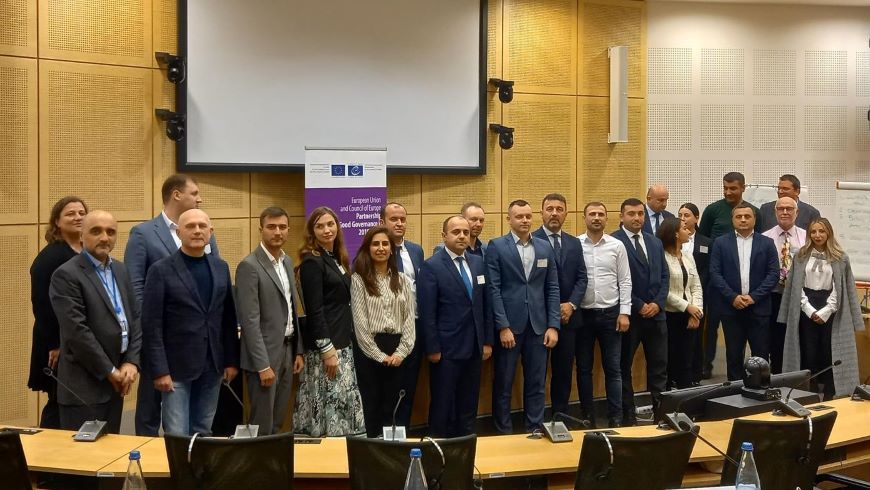Dedicated technical capacity for conducting financial investigations has proven to be a determining factor for the effectiveness of the fight against economic crime worldwide. Indeed, financial investigations can help identify organised criminality, determine the structure of organised crime groups, locate assets, identify ownership and use of properties, evidence offenders’ lifestyles, track movements of people and money and link them to criminality, among many advantages. But significant challenges remain for the law enforcement authorities of most jurisdictions, including Eastern Partnership countries, to regularly conduct financial investigations and effectively use their results for prosecuting criminals and recovering proceeds from crime. These challenges often relate to insufficient resources and a lack of specialised skills in this area – as identified in MONEYVAL’s evaluation reports.
In order to support the development of financial investigation capacities in the Eastern Partnership countries, the Economic Crime and Cooperation Division organised a three-day scenario-based training programme on financial investigations for prosecutors and investigators from Armenia, Azerbaijan, Georgia, Moldova and Ukraine, at the Council of Europe Secretariat premises in Strasbourg.
This regional event aimed to strengthen the financial investigation skills of these practitioners through a hands-on, scenario-based training approach focusing on the application of specific techniques and on resolving practical challenges related to financial investigations and their effectiveness. It was designed to help law enforcement professionals plan, conduct or supervise effective financial investigations, by developing their awareness of the processes of such investigations and different approaches to elaborating and conducting them, with the involvement of all relevant public authorities engaged in combating crime with an economic component.
The training programme was based on international standards and practices, with particular attention to existing guidance from the Financial Action Task Force (FATF) on financial investigations, but also real financial investigation cases and latest practices from countries with currently more advanced experience in this area. Participants learnt about ways to analyse financial information, adequately use intelligence within financial investigations and turn it into evidence to prove a case of money laundering or other economic crime, the importance of properly planning such investigations, how to “follow the money” step by step within different types of cases, and how to optimise inter-agency cooperation at national level.
As financial investigations in the area of economic crime rarely remain confined within the geographical borders of one single jurisdiction, and most often require cooperation among countries, the topic of international cooperation against crime was also discussed in practical terms relevant to the prosecutors and investigators attending the event. Participants also had the opportunity to share and discuss specific challenges they encounter with the economic crime cases they are faced with in their daily work, and exchange with their peers on how to best address them.
The event thus also fostered further regional collaboration in this area among the participating countries, in accordance with the project’s aim to increase peer-to-peer exchanges and enhance cross-border cooperation and international exchange of information in order to effectively address corruption, money laundering and terrorist financing in the region.
This event, together with other activities, such as the development of handbooks and manuals on financial investigations (both at country-level and regional level), is part of the Council of Europe’s broader efforts to support the region’s authorities in the fight against economic crime, through a holistic approach.
This event was organised in the framework of the Regional Project on “Strengthening measures to prevent and combat economic crime” which is co-funded by the European Union and the Council of Europe and implemented by the Council of Europe in their Partnership for Good Governance II.




